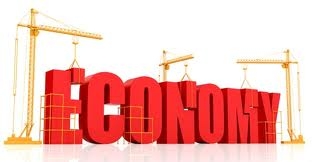Vietnam won’t change macroeconomic target despite of Covid - 19
Friday, February 28,2020
AsemconnectVietnam - Vietnam’s government is striving to meet dual targets to avoid the spread of COVID-19 and ensure the safety of people while achieving the macroeconomic indicators set by the Party and the National Assembly.
At a meeting of the National Financial and Monetary Policy Advisory Council held in Ha Noi recently, Prime Minister Nguyen Xuan Phuc said that it was necessary to be cautious but not pessimistic when analyzing the impacts on the country’s economy and take suitable measures adding there was no basis to adjust the country’s approved macro-economic targets.He confirmed that Vietnam was a safe country with good and stable indicators.
In the current climate, the authorities must take strong, drastic and thorough measures and reforms to fight against the epidemic, boost production and business to meet the economic growth targets, Mr. Phuc noted.
The Prime Minister directed ministries, agencies, cities and provinces nationwide to work out plans to deal with socio-economic impacts caused by the virus.
It was necessary to strengthen the capacity of analyzing, forecasting and coping with external uncertainties, the PM said.
The members attending the meeting of the National Financial and Monetary Policy Advisory Council agreed the need to continue consistently implementing targets of controlling inflation, stabilizing the macro-economy and ensuring major balances of the economy, which they believed would create a firm foundation for sustainable development. They noted instability of the nation’s macro economy could have serious consequences.
According to the governor of the State Bank of Viet Nam (SBV) Le Minh Hung, the most important thing was to keep macroeconomic stability. Therefore, to control inflation, Hung said the central bank would apply a cautious monetary policy, but not too tight, so as to not affect the economic growth.
As the council’s members advised the Government to continue applying credit supporting policies for businesses affected by the COVID-19 epidemic, the Governor also reported the SBV required commercial banks to reschedule debt repayments to help customers affected. The banks then needed to report back to the SBV between March 15 and March 31.
According to the SBV’s direction, Hung said, banks would consider rescheduling repayments, reducing interest rates and temporarily suspending debts.
The central bank also asked banks to provide new loans to customers to stabilize their production and businesses.
According to local banks, customers suffering the most were firms involved in transportation, storage, accommodation, tourism, restaurant and food service. Others include agricultural and fisheries companies whose major export market is China and those whose main materials are imported from China.
At the meeting, the council members also advised the Government to continuously boost industries, which have potentials and advantages, to reduce and offset adverse impacts of the epidemic.
Appropriate solutions were also needed to ensure human resources, labour and normal business and production conditions for the sector, they said.
In addition, the Government should promote the disbursement of public investment projects, especially key national ones.
Prime Minister Nguyen Xuan Phuc told the central bank and the Ministry of Planning and Investment to continuously gather the council members’ recommendations and report to the Government’s upcoming meeting and complete a Government’s draft directive on solutions to support and promote production and business to issue next time.
Vietnam needs to restructure economy to face with influences caused by Covid -19
The acute respiratory disease caused by a novel coronavirus (COVID-19) has highlighted an urgent need for Vietnam to boost its economic restructuring and diversify its markets.
According to the Minister of Planning and Investment Nguyen Chi Dung, the epidemic is an opportunity for Vietnam to look at its strong points and weak points, and to accelerate the restructuring process, It is time for Vietnam to build an economy more independent and resilient to adapt to changes.
The epidemic has been taking its toll on the Vietnamese economy. The Ministry of Planning and Investment pointed out that a number of sectors would be affected such as travel, transportation, agricultural, forestry and fishery production, industrial production, trade and investment.
The ministry also forecast lower economic growth rates in 2020 than the Government’s targets.
According to the ministry’s latest report, if the epidemic was brought under control in the first quarter, GDP growth rate for 2020 would reach 6.25 percent, 0.55 percentage points lower than the Government’s target. The Vietnamese economy would grow just 5.96 percent this year if the epidemic continued until the second quarter.
According to Mr. Vu Tien Loc, Chairman of the Vietnam Chamber of Commerce and Industry, the epidemic was seriously affecting production and business operations, urging firms to take action to minimize the economic damage caused by COVID-19, not just wait for Government support.
The Ministry of Planning and Investment predicted that if the epidemic prolonged to the end of the first quarter, revenue from international tourists would decrease by 2.3 billion USD in 2020 and 5 billion USD if the epidemic lasted to the end of June.
Agricultural production has also suffered heavily. China is the largest market for Vietnam’s agricultural produce, accounting for 22-24 percent of the country’s agro-forestry-fisheries exports.
Minister of Agriculture and Rural Development Nguyen Xuan Cuong was quoted by the Vietnam News Agency as saying that challenges must be turned into opportunities. Cuong stressed that the ministry would focus on pushing agricultural restructuring and developing markets for agricultural products.
Farmers must cooperate with firms to build value chains for sustainable development, he stressed.
Researchers from the Training and Research Institute st the Bank for Investment and Development of Vietnam recently pointed out that developing and implementing a strategy to diversify markets and trade partners was needed for Vietnam to reduce dependence on single markets.
Economic restructuring must also be strengthened, researchers said, adding that the focus should be on quality, creativeness, inclusiveness and sustainable development.
It was also necessary to enhance the economy’s resilience to external shocks by enhancing competitiveness, improving production capacity and developing domestic markets.
To cope with the COVID-19 epidemic, Prime Minister Nguyen Xuan Phuc has asked ministries to reorganize production and take advantage of trade deals to diversify and expand international markets. He said that, developing the domestic market and improving domestic purchasing power were also important.
CK
Source: VITIC/Vietnamplus.vn/VNS
Vietnam showing better-than-average growth: Indian expert
Vietnam works hard to boost exports to Chinese market
DAILY: Vietnamese pepper prices remained unchanged on March 24
Reference exchange rate down 15 VND
DAILY: Vietnamese coffee prices rose by 300 VND on March 24
Stock market violations to face stricter sanctions
Wood industry strives to regain growth momentum
Vietnam's exports to several ASEAN markets rebounded
Export turnover to the US in 2 months of 2023 reached 13 billion USD
DAILY: Vietnamese pepper prices remained unchanged on March 23
DAILY: Vietnamese coffee prices fell by 300 VND on March 23
Singaporean site highlights Vietnam’s potential for fintech growth
Vietnamese coffee finds ways to gain foothold in RoK market
Dragon fruit export turnover reaches 47 million USD

Plan on implementing Decision No. 327/QD-TTG dated March ...
Concretize viewpoints, objectives, tasks and solutions of the plan in accordance with practical conditions of the locality, associating ...Plan on implementing national environmental protection ...
Implementation plan of marine aquaculture development ...
Program on conservation and development of Vietnamese ...
Plan on improving quality of human resources to 2025 and ...

Efforts taken to turn culinary culture into national ...
The Vietnam Cuisine Culture Association (VCCA) is taking steps to implement a project to build and develop Vietnamese culinary culture ...Vietnamese cuisine making a name for itself with ...
Vietnam advance to next round of AFC U20 Women’s Asian Cup
Cultural tourism and traditional values promoted through ...



